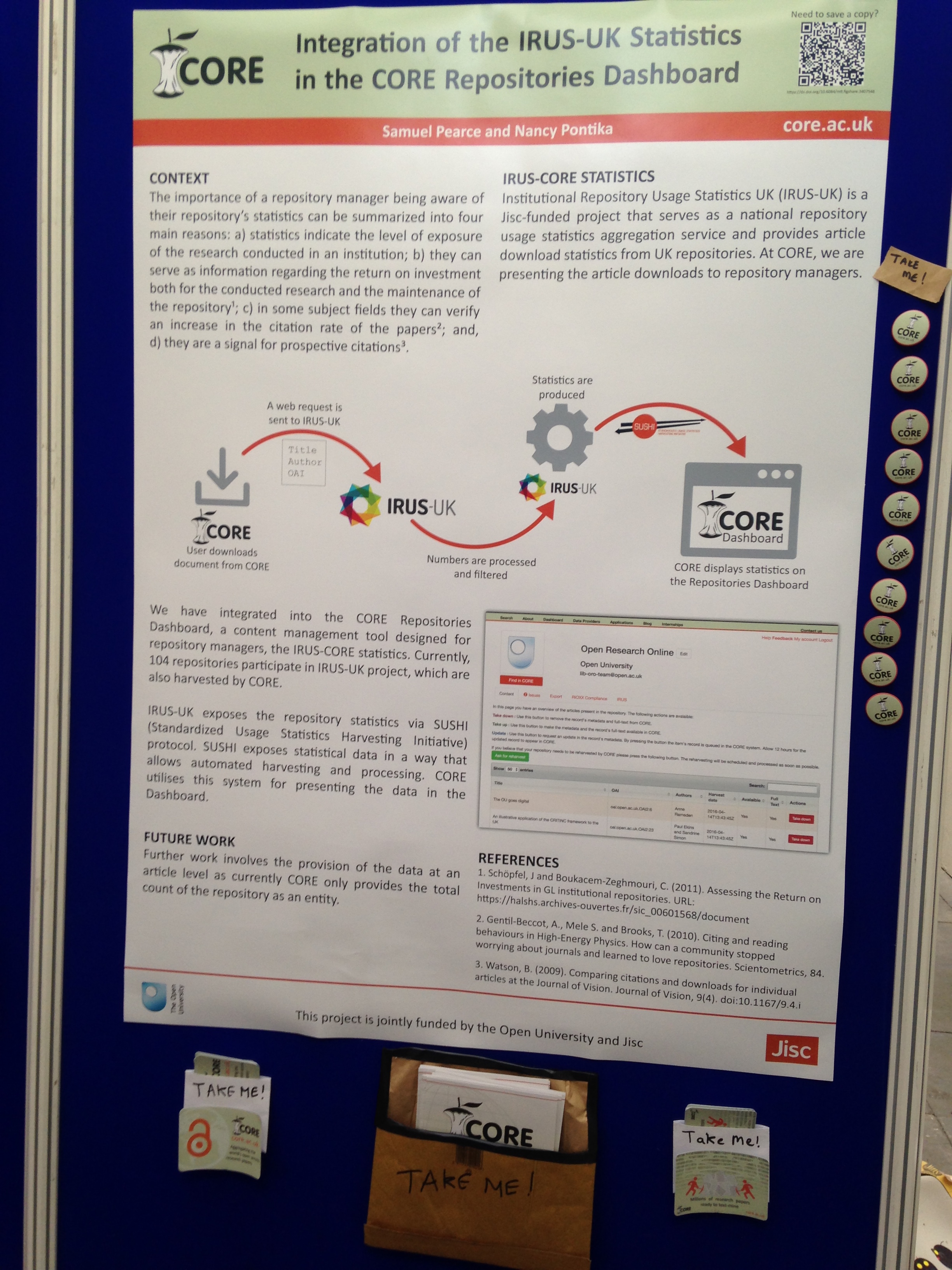* This post was authored by Matteo Cancellieri, Petr Knoth and Nancy Pontika.
Last month, CORE attended the JISC ORCID hackday events in Birmingham and London. (ORCID is a non-profit organisation that aims to solve the author disambiguation problem by offering unique author identifiers). Following the discussions that sparked off at the two events, we decided to test the CORE data towards ORCID’s API and we discovered some information that we think is of interest to the scholarly community.


